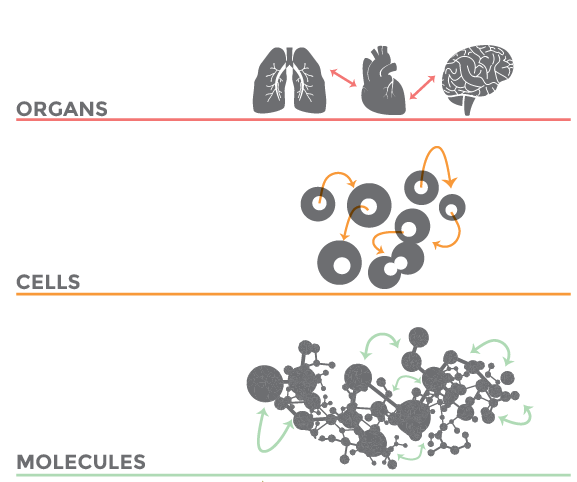Systems Biology 101: Network of Networks
 isbscience.org/news/2015/03/18/systems-biology-101-network-of-networks/
isbscience.org/news/2015/03/18/systems-biology-101-network-of-networks/
(Illustration above is cropped.)
With networks we can organize and integrate information at different levels. Social networks have transformed communications in the 21st Century, democratizing our platforms for communications. At ISB we are also concerned with networks. One of the tenets of systems biology we often refer to is the “Network of Networks.” On a biological level, our bodies are made up of many networks that are integrated at and communicating on multiple scales. From our genome to the molecules and cells that makeup the organs in our bodies all the way out to ourselves in our world: we are fundamentally a network of networks. Systems biology looks at these networks across scales to integrate behaviors at different levels, to formulate hypotheses for biological function and to provide spatial and temporal insights into dynamical biological changes. It is not enough to understand only one part of a system when studying the complexity of biology. Therefore the framework of the “Network of Networks” provides meaningful insight into understanding how systems biology’s approach is different, more integrated and more capable of analyzing and predicting state transitions in biological systems.







